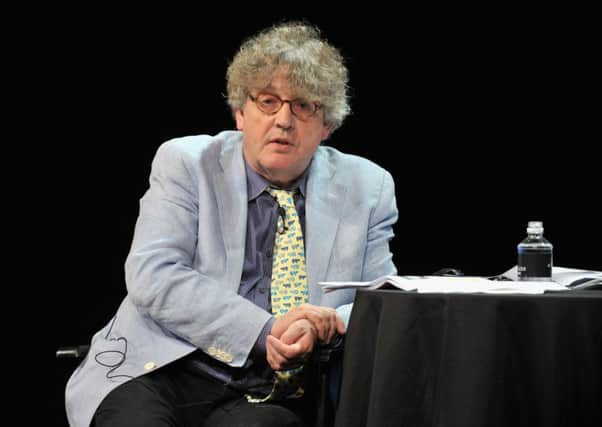Book review: Frolic And Detour, by Paul Muldoon


Like many of his previous collections, Frolic And Detour has longer poems interspersed with shorter works. The longer form seems to suit Muldoon best, as a kind of challenge to the idea that the ideal poem is a haiku. It would be wrong to highlight the “stand out” poems as almost every page shows a dazzle and glamour that few other contemporary poets might reach.
That said, the ones which emphasised his gift of humour and intellect, for me, were the diptych of “Pablo Picasso: Bottle Of Bass and Glass” and the following poem “George Braque: Still Life With Bottle Of Bass”. They are endearingly silly, featuring numerous literary figures on a kind of bar-crawl. “Martinus Scriblerus drank with Alexander Pope. / John Milton drank with Edna St Vincent Millay. / God had a drink or two with William Blake. / It was mostly with Wordsworth Coleridge liked to tope”.
Advertisement
Hide AdNow, the really clever thing is that the two poems, referring to two Cubist painters whose works can be indistinguishable, are the same poem. I’ve wracked myself trying to find a different word. But that’s the genius of Muldoon: he requires you to re-read, not read.
The first of the long poems, “Encheiresin Naturae” (an alchemical term, deployed in Goethe’s Faust about how the soul embodies in flesh), has the subject matter that one might expect of Seamus Heaney, but with a formal structure that more resembles John Berryman, particularly Homage To Mistress Bradstreet. It is constructed as 15 sonnets, but with a kind of villanelle quality linking each piece.
For example, the first ends “For now we would astound / ourselves with a pig hanging from a roof truss / as if it might be making a half-hearted attempt to fly / before falling hard to the ground”. The second begins “Whatever it was that fell there on the ground”, and so on until the ouroboros end.
It mixes folk-gossip and theology, the Great War and grief, but also gives the reader a wink at how to work with these poems. It ends with a violin being dusted off, and “one by one, tightening the tuning pegs”. The rhymes and chimes are exactly that tightening of pegs. It seems as if making things more difficult makes things more creative. But even if you aren’t interested in the technicalities of contemporary poetry, there is ample emotion here. Sometimes this is in Muldoon’s use of the gap between the quatrains and tercets – indeed in any line break – whereby you don’t quite realise how he is going to twist what you have just read.
Some of the poems are about “public” events – the 1916 Uprising, the Great War, the state of modern America – and they are far more engaging and wry than most of the public commemorative verse. The title poem is a case in point. It uses slant-rhyme and it is slant indeed. I noticed that amongst the list of other titles, Muldoon has edited collections of Byron and Donne: he has Donne’s baroque intellectual conceits, but also Byron’s ebullience in word-play.
The final poem is the American poem, and is also a brilliant form of stream of consciousness, with the narrator flipping between Peter Pan, wrens, Jenny Wren (who played the original Tinkerbell), Jimi Hendrix, Walmart, difficulties in buying a sander belt, and Tamenend, the Lenni-Lenape chief who appears, somewhat anachronistically, in The Last Of The Mohicans (and was a symbol for American multicultural unity: Tammany Hall derives from his name).
Advertisement
Hide Ad“Though it’s rare for me to deviate / from the task in hand”, this is a glorious work of deviation. “Then as now, the trick was to accept that a mindful rallying of the unruly / on an eternally nameless ‘path’ / is no less a hen’s errand” – another clue on how to re-read Muldoon. But the slant-rhymes are delicious. The sheer audacity of linking the words “bridge” and “Korean porridge” or “5%” and “ocean vents” or “ibuprofen” and “ruffian” is quite remarkable. This is poetry at its most wide-ranging and curious about the world, but cleverly fettered in formal strictures and structures.
If you buy one book of poetry this year, make it this one. Although you might learn to appreciate the nuance of how contemporary poetry can be askance and awry, you shall come away with a kind of moral polish. It is not “difficult”; that curse word of modern poetry. Take for example just this: “Now we’re known less for snipers’ nests / than nests of singing birds”. Stuart Kelly
Frolic And Detour, by Paul Muldoon, Faber & Faber, £14.99